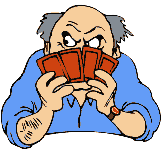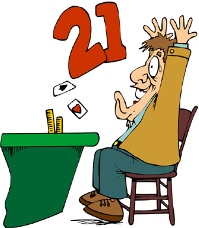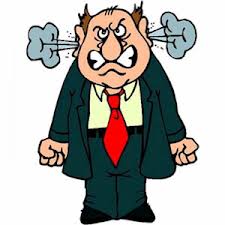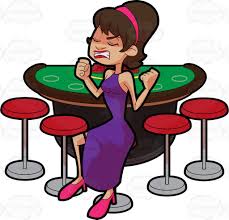There are more than a few common blackjack myths that have been propagated throughout the generations by players, pit bosses, and even dealers, that if followed, can lead to ruin. We debunk them for you here so you won’t have to lose your shirt following these famous fallacies.
Blackjack Myth #1. The Bad Player:

The stupid player at the end of the table is ruining the game: I saw a guy once splitting a pair of tens and hitting a fifteen with a dealer bust card of 6 showing. Most people polled think that players like this affect their chances of winning their hand because they upset the natural flow of cards, and the odds of the game.
Wrong: The truth is that, while playing poorly may affect an individual’s chances of beating the dealer, it has no bearing on the chances of other players at the table to do so in the long run. Just as someone sitting at third base may take the 10 that the dealer needed to bust, he or she may also take a low card, allowing the dealer to receive that next busting card. Just as a bad player can true and could result in the entire table winning. Bad players will cause the dealer to lose just as much as they help them win, so don’t leave a table because of them.
 Blackjack Myth #2. The Goal of Twenty One:
Blackjack Myth #2. The Goal of Twenty One:
The goal in blackjack is to get as close to twenty one as possible without going over:
Wrong: The objective in blackjack is to beat the dealer by either 1) making a hand that totals more than that of the dealer, or 2) staying and allowing the dealer to bust. Most hands in blackjack are lost by players who take one too many hits and bust before the dealer does.
Blackjack Myth #3. Insurance:
Always insure your good hand against a dealer’s ace: By insuring a good hand, you increase your chances of winning incase the dealer pulls a 21. Likewise, you should take even money if you have blackjack and the dealer is showing an ace.
Wrong: Insurance is always a sucker bet (unless you are counting cards). Why? It has been mathematically proven that not taking insurance when you are holding a blackjack over the long run will give you a 4% advantage. Because you are holding two ten value cards that the dealer needs in order for you to win your insurance bet (remember you win your insurance bet only when the dealer’s hole card is a ten-value card giving him a blackjack hand). Because you have two of the cards he needs for a blackjack, the odds of his getting a blackjack are worse. Your 20 is a sure winner; don’t mess it up by taking insurance (translated–don’t make a bad bet to protect a good bet). However, taking insurance in every instance is often one of the worst moves you could make. When you take insurance you give up 13% of blackjack profits, drastically cutting into your winnings.
 Blackjack Myth #4. The Sacred Order of the Cards:
Blackjack Myth #4. The Sacred Order of the Cards:
The order of the deck in a game of blackjack is sacred. If a new player joins the game in the middle or one of the other players surrenders or leaves in the middle of a shoe, then this sacred order can be thrown off, ruining the other players’ chances of winning.
Wrong: When something seems to go wrong in the game our human nature causes us to look for any changes in the environment that may have occurred. While these actions will change the order of the cards, there is just as much a chance that they will result in a change that will help you to win. This is a myth that many players use to place the blame on others for their losses, rather than owning up to their own bad strategy or luck.

Blackjack Myth #5. Winning Strategy Myths:
Play like the dealer: The house knows the odds better than anyone, so if I play like him and simply hit every hand 16 or under and stand on 17 or better (including soft hands), I should be able to win as often as he does, right?. No need to split or double-down since the dealer cannot take these actions either.
Wrong: Since the player can always bust before the dealer does, this explains why playing just like him still gives the house a 5.48% advantage; far worse than if you played perfect basic strategy.
Blackjack Myth #6. Always play as if the dealer has a ten card in the hole:
Since there are far more ten value cards in the deck than any other, isn’t it smart to play every hand as if the dealer is hiding a ten (e.g. dealer is showing a 5, assume he has 15)?
Wrong: There is a 70% chance the dealer is not holding a ten in the hole. Playing a modified basic strategy adjusted for the assumption that the dealer has a ten in the hole results in a house edge of just over 10%. This is by far, one of the worst strategies you could employ, but I’ve even heard dealers recommend this myth to players.
 Blackjack Myth #7. Play defensively and never bust:
Blackjack Myth #7. Play defensively and never bust:
If I never hit a hard hand totaling 12 or greater, I effectively eliminate the dealer’s advantage that comes from the players busting first. All other hands are played according to optimal basic strategy.
Wrong: Although you eliminate the dealer advantage from a players’ early bust, you are not maximizing the value of acquiring a better hand by hitting these hard hands when appropriate. Standing on hard hands totaling 12 or greater resulted in a house edge of almost 4%.
If you enjoyed this article, make sure you checkout The Top Misplayed Hands in Blackjack.
***************************************************
By the way, I've played at many of the TOP RATED online casinos on the net, and I can say that BOVADA'S LIVE BLACKJACK games offer the best surrender games in the industry.
Their payouts are fast and their customer support is top notch. They make make it easy to make Bitcoin and all major credit card deposits.
Sign up for free or take advantage of their amazing welcome bonuses currently over $3K! click the link >> BOVADA BONUSES
Or play one of their 8 FREE blackjack software DEMO GAMES (after the redirect, just close the pop-up sign-up & select a game) link >> DEMO BLACKJACK GAMES
*Disclaimer - I do receive a commission if you decide to deposit and play with real money.

You mentioned above about some dealers telling players to always play as if the dealer’s hole card is a ten value. I hear this all the time from dealers and from many of the other players as well. While I understand your mathematics behind this fallacy, how can a player try to determine what the dealer hole card maybe. If you “guess” that seventy percent of the time it will not be a ten value card, you still don’t know when it maybe as at times it will be only thirty percent of the time but of course this will vary a great deal. Just wondering what your take is on this.
By card counting, one can only estimate the probability that the dealer is holding a 10 in the hole based on when the count is rich. This means that several of the lower denomination cards have been dealt, leaving the deck stacked with a greater percentage 10 value cards.
Card counting attempts to determine the probability of a high chance that high value cards will be dealt during the next hand based on the richness of the count. However, in modern blackjack games, casinos have gone through exhaustive lengths to thwart counters. You’re better off relying on a strategy that uses statistical probabilities. See the YouTube video, “Why Card Counting Sucks.”